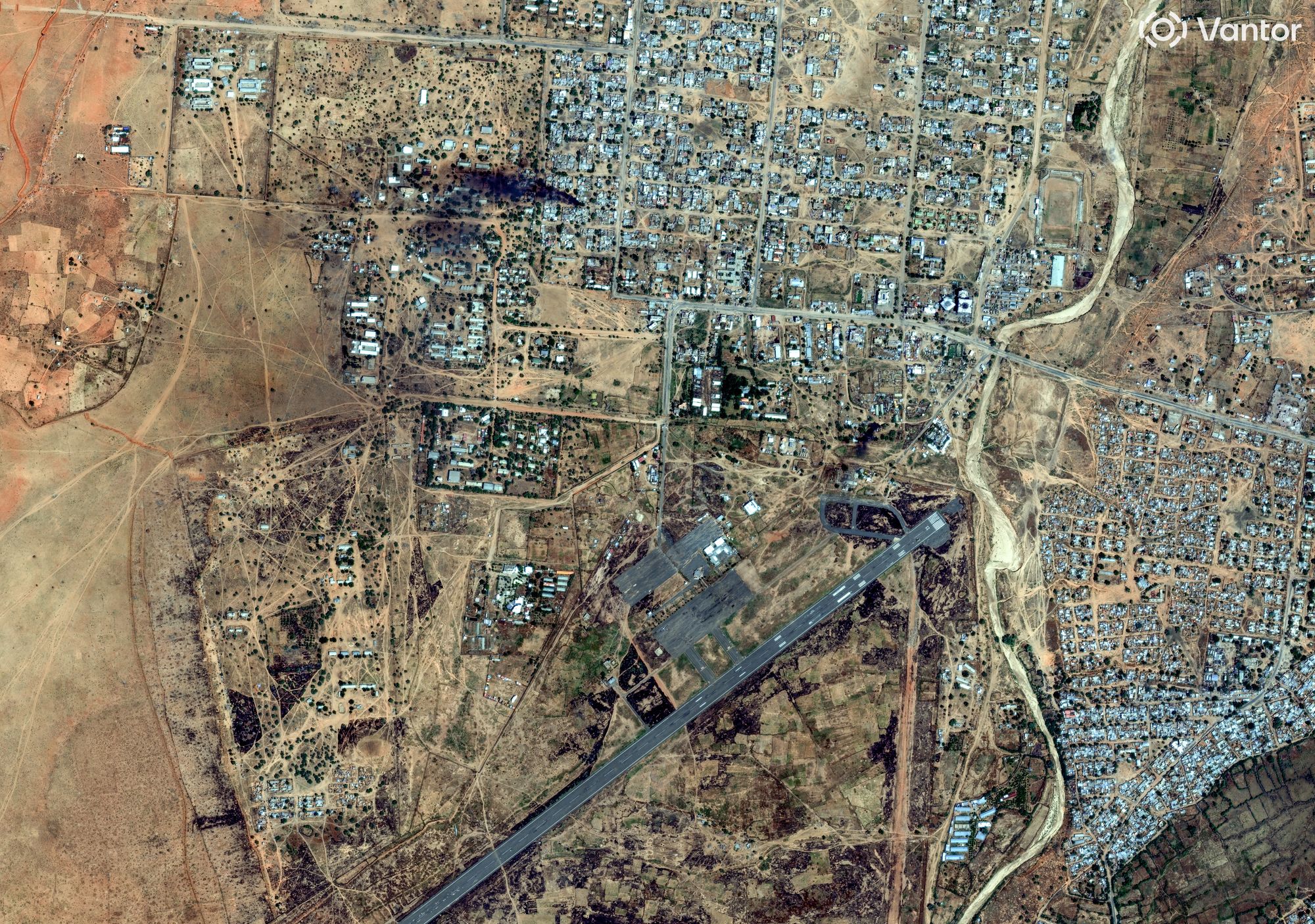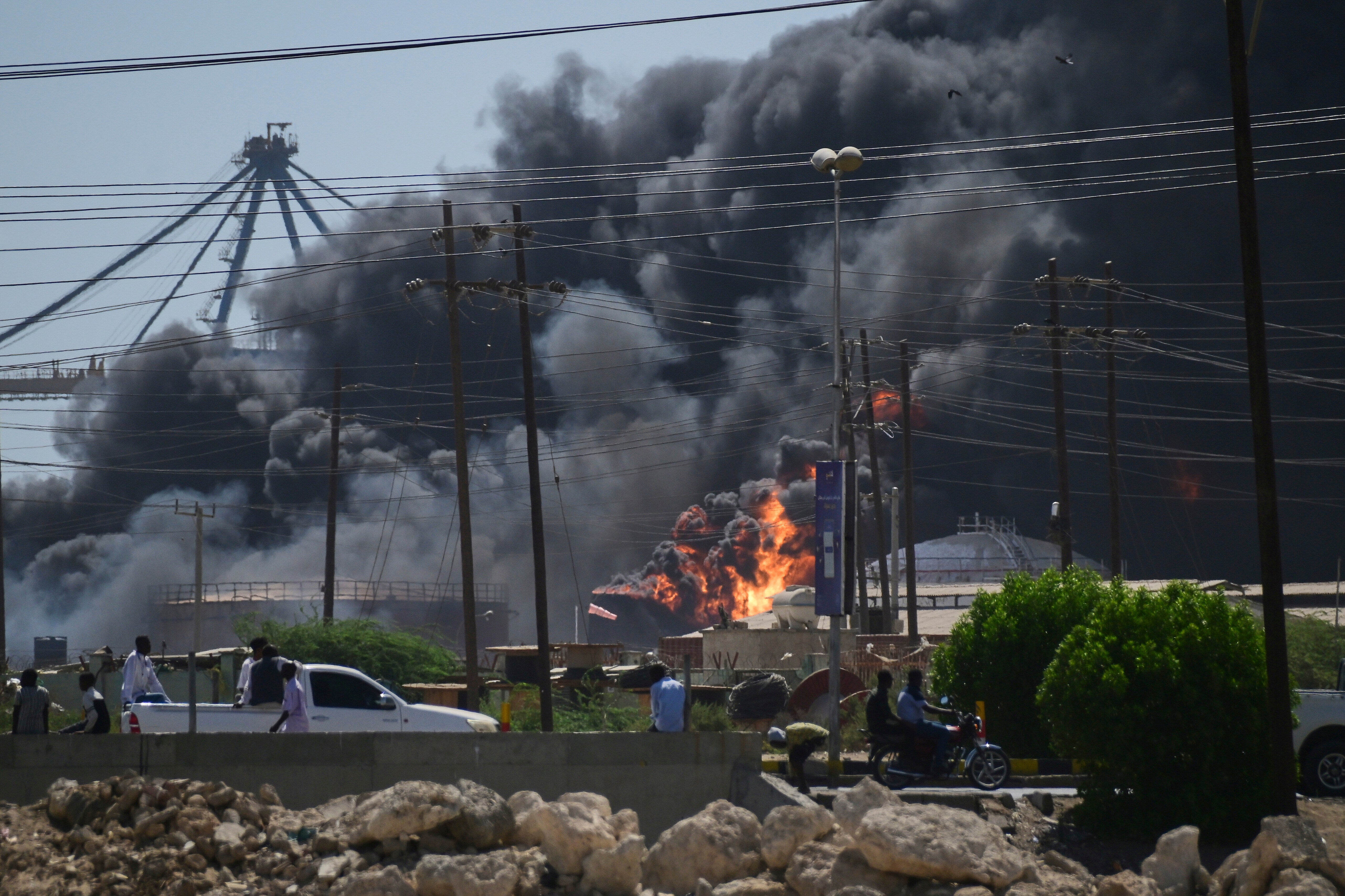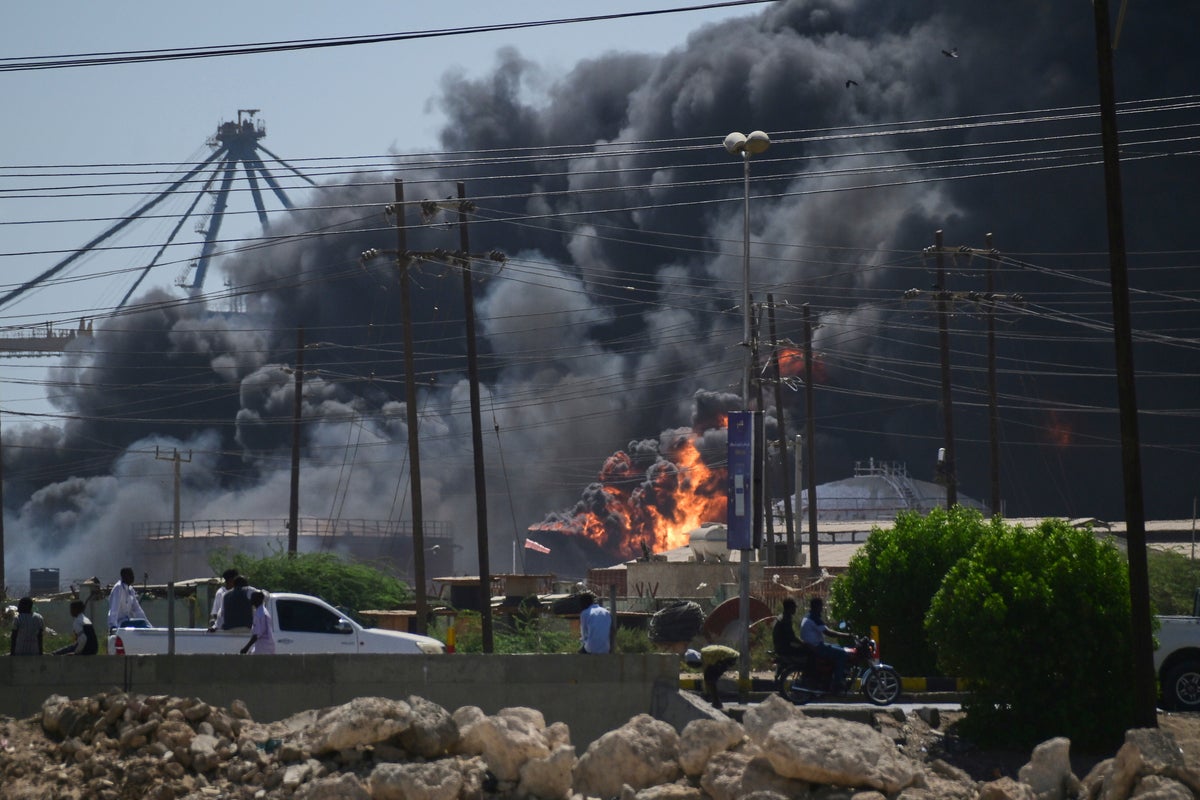Your support helps us to tell the story
From reproductive rights to climate change to Big Tech, The Independent is on the ground when the story is developing. Whether it’s investigating the financials of Elon Musk’s pro-Trump PAC or producing our latest documentary, ‘The A Word’, which shines a light on the American women fighting for reproductive rights, we know how important it is to parse out the facts from the messaging.
At such a critical moment in US history, we need reporters on the ground. Your donation allows us to keep sending journalists to speak to both sides of the story.
The Independent is trusted by Americans across the entire political spectrum. And unlike many other quality news outlets, we choose not to lock Americans out of our reporting and analysis with paywalls. We believe quality journalism should be available to everyone, paid for by those who can afford it.
Your support makes all the difference.Read more
Paramilitary forces in Sudan have been accused of burning bodies and burying them in mass graves in a “desperate attempt to conceal evidence” of brutal killings in Darfur.
The Sudan Doctors Network claimed that the Rapid Support Forces (RSF) was trying to cover up its crimes after thousands of people were killed in the city of El Fasher.
The medical organisation condemned the alleged disposal as “one of the most inhumane acts in recent days” and reiterated that “these crimes cannot be erased through concealment or burning”.
In a post shared on X, it said: “The RSF has collected hundreds of bodies from the streets and neighborhoods of the city, burying some in mass graves and burning others completely in a desperate attempt to conceal evidence of their crimes against civilians.”
The “crimes” refer to the bloody massacre that took place on October 26 in El Fasher in which the RSF took control of Darfur and killed what humanitarian officials estimate to be over 2,000 people.
The International Organization for Migration estimates that around 82,000 people fled the city and surrounding areas in recent weeks after horrific accounts of rape, torture and mass killings.

open image in gallery
Smoke billowing from fires burning around El-Fasher Airport in El-Fasher. UN officials warned on October 30 that “large-scale atrocities” were underway in Sudan’s Kordofan region as paramilitary forces advanced, while residents in El-Fasher, a key city in the neighboring Darfur region, were being subjected to mass “horror.” (Satellite image ©2025 Vantor/AFP)
The post continued: “What happened in El Fasher is not an isolated incident but rather another chapter in a full-fledged genocide, carried out by the RSF blatantly violating all international and religious norms that prohibit the mutilation of corpses and guarantee the dead the right to a dignified burial.
“The situation in El Fasher has gone beyond a humanitarian catastrophe to become a systematic genocide, targeting human life and dignity amid an appalling international silence that amounts to complicity.”
UN human rights spokesperson Volker Türk warned that those left behind in the city are at risk: “Today, traumatized civilians are still trapped inside El Fasher and are being prevented from leaving.”
El Fasher, the last major city in Darfur to fall to RSF paramilitaries, was “already the scene of catastrophic levels of human suffering (but) has descended into an even darker hell,” said the UN’s humanitarian chief Tom Fletcher.
A war has been ongoing in Sudan for two years and recently entered a new dangerous phase in October. Since then, the UN described Sudan as the world’s worst humanitarian crisis. Over 150,000 people are reported to have been killed and over 14 million displaced.

open image in gallery
Smoke billows after drone strikes by the paramilitary Rapid Support Forces (RSF) targeted the northern port in the Red Sea city of Port Sudan, Sudan, Tuesday, May 6, 2025. (AP Photo/File) (Copyright 2025 The Associated Press. All rights reserved.)
The RSF has also been targeting people based on the colour of their skin in a series of ethnic killings, according to Sylvain Penicaud of Doctors Without Borders.
Hassan Osman, a university student from El Fasher, told Al-Jazeera that residents with darker skin, especially Zaghawa civilians (who were the dominant ethnic group), were subjected to “racial insults, humiliation, degradation and physical and psychological violence” as they fled.
“If your skin is light, they might let you go,” he said. “It’s purely ethnic.”
The RSF has been contacted for comment.

